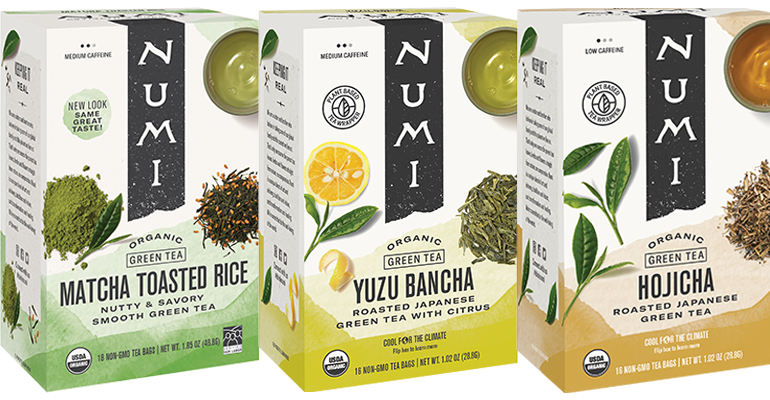News
Functional food in Japan centres on health and proving claims
8 Dec 2022
The latest Japanese functional food and drink trends put health and product efficacy firmly on the production agenda for new releases.
“Nutrition continues to be integral to consumers seeking a healthy lifestyle,” a spokesperson for social enterprise and consumer-facing tea brand, Numi, told Ingredients Network. Today’s consumers want products that taste good and offer additional health value, and they seek out products with clean, raw materials that enhance health properties.

“We find consumers are continuously looking for health and wellness trends in food and drink,” says Numi’s spokesperson. Less processed and more natural alternatives are in demand, including organic, free-from, food minus, food intolerant and naturally healthy claims and ingredients.
Expectations centre on desirable health outcomes
To stay relevant, brands therefore want to support consumers with their health concerns and empower them to make health-based choices via their chosen foods.
The gut microbiome is an active opportunity for functional brands. Consumers connect products with gut claims as having the ability to support their overall wellbeing, improve immunity and prevent disease, Cormac Henry, global food and drink analyst at Mintel, details in a recent blog following Hi Japan, the country’s leading industry event for functional and health ingredients.
Formulations that strive to optimise mental and physical performance through greater functional understanding and application are generating interest too. Neurological health is increasingly popular as consumers seek solutions to support their sleep, stress levels and overall functioning.
Adaptogenic ingredients, which are natural elements such as plants and mushrooms, are considered a core component of herbal medicine, associated with providing a restorative effect and helping the body adapt to stress.
Questions over the effectiveness of functional food and drink remain, however. In the US, only 28% of adult consumers trust that drinks with functional claims will deliver their intended results, Mintel research states. Further, 63% of UK adults report it’s difficult to identify whether products with health claims are successful in creating change.
As a result, there are growing efforts to inform and educate consumers on functional products’ efficacy. The segment seeks to highlight their performance capabilities and encourage consumers to try new products.
New releases
Rising demands for health foods in Japan are prompting brands in the functional, natural and fermented food ingredients space to deliver fresh insights and novel product launches.
Organic tea brand Numi launched its roasted Japanese product line in November 2022.
Sourced from a Japanese organic tea farm, Numi’s new product range is lower in caffeine, high in antioxidants and includes vitamins A, C, and E. Developing its latest range, Numi sought to deliver benefits in line with current consumer trends, including popular flavours including umami and yuzu and functional products made from natural ingredients.
In October 2022, Japanese company Teijin launched the Teijin Meguro Institute to develop and manufacture probiotics for functional foods. The new establishment aims to produce functional food ingredients that reflect health-conscious consumer needs and focus on probiotics.
 Numi Organic Tea launches Source: Numi Tea
Numi Organic Tea launches Source: Numi Tea
Product development themes under the Foods with Function Claims (FFC) framework
Functional products and claims have garnered increased attention since the introduction of the Foods with Function Claims (FFC) framework in 2015, which welcomed a new category of food containing health claims.
The FFC led to new health claims permissible in the new regulatory system. Common claims relate to fatigue, memory, stress, sleep, blood flow and body temperature, a 2019 review reports. The review of functional food products found that following the implementation of the new system, total functional food sales, including Food for Specified Health Use (FOSHU) products, hit $8 billion.
The researchers stated that the new functional regulatory system is more flexible regarding health claims, clinical studies’ protocols and the required results. As such, the new regulatory products market is still growing.
Related news

Empowering innovation in fortification and colouration
13 Nov 2025
Divi’s Nutraceuticals offers a large portfolio of innovative, high-quality ingredients for foods, beverages, and supplements, with bespoke solutions and expert support for product success.
Read more
Danone highlights digestive health as potential ‘tipping point’ for food industry
13 Nov 2025
Danone is betting on a food industry “tipping point” that will bloat the market for healthy products, particularly those related to gut health.
Read more
Standing Ovation and Bel scale up casein production from dairy co-products
11 Nov 2025
Foodtech company Standing Ovation has partnered with cheese specialist Bel Group to manufacture dairy serums for industrial-scale casein production via precision fermentation.
Read more
New UPF standard hoped to offer consumers ‘coherence and clarity’
10 Nov 2025
Ingredients companies are being urged to enter “a new era of partnership and innovation” following the launch of the industry’s first non-UPF verification scheme.
Read more
Whistleblowers accuse UK meat industry of promoting cheap, unsustainable supply
7 Nov 2025
An anonymous group of industry insiders has accused the UK’s biggest food companies of systematically driving down meat quality and welfare standards.
Read more
Cottage cheese makes a comeback as consumers call for cleaner labels
6 Nov 2025
From ice cream to dips and ready meals, cottage cheese is experiencing a renaissance as a high-protein, clean ingredient for health-conscious consumers.
Read more
Bord Bia presents Irish dairy ingredient suppliers at Fi Europe
6 Nov 2025
Dairygold Co-operative Society, The Carbery Group, and Ornua Co-operative: Meet with sustainable producers of Irish dairy ingredients at Food ingredients Europe 2025, Hall 7.2 Stand M18.
Read more
Faravelli at Fi Europe: Showcasing FARA® functional solutions for food and nutra
28 Oct 2025
At Fi Europe 2025 in Paris (stand 72M39), Faravelli showcases FARA® Customized Functional Solutions and a wide ingredient portfolio for food and nutra – delivering quality, innovation, and expertise.
Read more
Agrigum Redefined FIBER
27 Oct 2025
Agrigum has transformed gum acacia into a natural, science-backed fibre that supports gut health, sustainability, and innovation across global food and nutrition applications.
Read more
Expanding boundaries in food & beverage innovation
23 Oct 2025
IMCD and FrieslandCampina Professional expand partnership to deliver Kievit® across EMEA, enabling brands to enhance quality and accelerate time-to-market for tomorrow’s food & beverage creations.
Read more